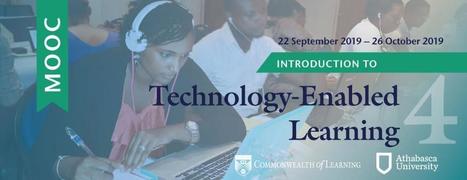Teachers who want to learn more about teaching with technology will find this Massive Open Online Course (MOOC), Introduction to Technology-Enabled Learning (TEL), informative and engaging. Using up-to-date learning design and simple, accessible technology, the course runs on an easy-to-use learning platform available via the Internet. The course is designed for teachers who want to build on their knowledge and practice in teaching and learning with technology. It will run over five weeks and requires approximately three to five hours of time each week. Designed to accommodate teachers’ busy schedules, the course offers flexibility with options for learning the content. You will learn from readings, videos, discussions with other participants and instructors, meaningful exercises, quizzes and short assignments. Certification is available for those who wish to complete all required exercises and quizzes.
Get Started for FREE
Sign up with Facebook Sign up with X
I don't have a Facebook or a X account
 Your new post is loading... Your new post is loading...
 Your new post is loading... Your new post is loading...

Marci Segal, MS's curator insight,
April 13, 2013 10:57 AM
Good to have a peek inside what's going on, eh? Ready to take the plunge? 
Daniel Tan's curator insight,
July 4, 2014 9:42 PM
The greatest contribution of MOOCs to education will not be the demographic and geograhic reach it claims to provide, but the disruption it creates on the limitations and previous beliefs of the instructivist pedagogy model. Data and learning analytics will document how the student, and more specifically, how the brain learns. The truism that "(s)he who speaks the most learn the most" will be based on data Collected and analyzed. For now, we content that in teaching a class, that teacher has learned the most. :) |
|

















